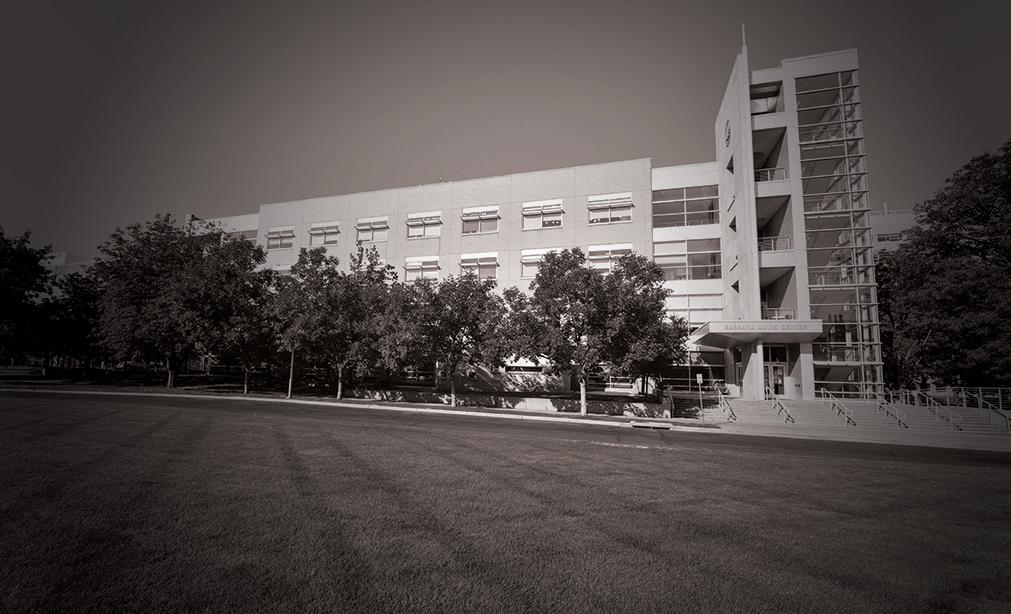With




On behalf of the University of Colorado Anschutz Medical Campus, thank you for the Helmsley Charitable Trust’s investments in a shared vision for improving the lives of people living with type 1 diabetes. For more than a decade, your generosity has made a profound impact on the developments of new treatments and therapies, and we are honored by your partnership.
The Helmsley Charitable Trust has played a key role in the success and growth of the Barbara Davis Center for Diabetes in partnership with the late Dr. George Eisenbarth, who served as the center director for two decades until Dr. Marian Rewers took the helm in 2012. To this day, Dr. Rewers’ leadership and your generosity continue to put the Barbara Davis Center at the forefront of diabetes research and care.
In this report, we celebrate some of the transformational programs and talented physician-researchers who have benefited from our longstanding partnership. I hope you take immense pride, as we do, in the life-changing work you make possible here.
Thank you for all that you do to support our ambitious vision at the Barbara Davis Center for Diabetes. Because of you, we are one step closer to ending this disease.
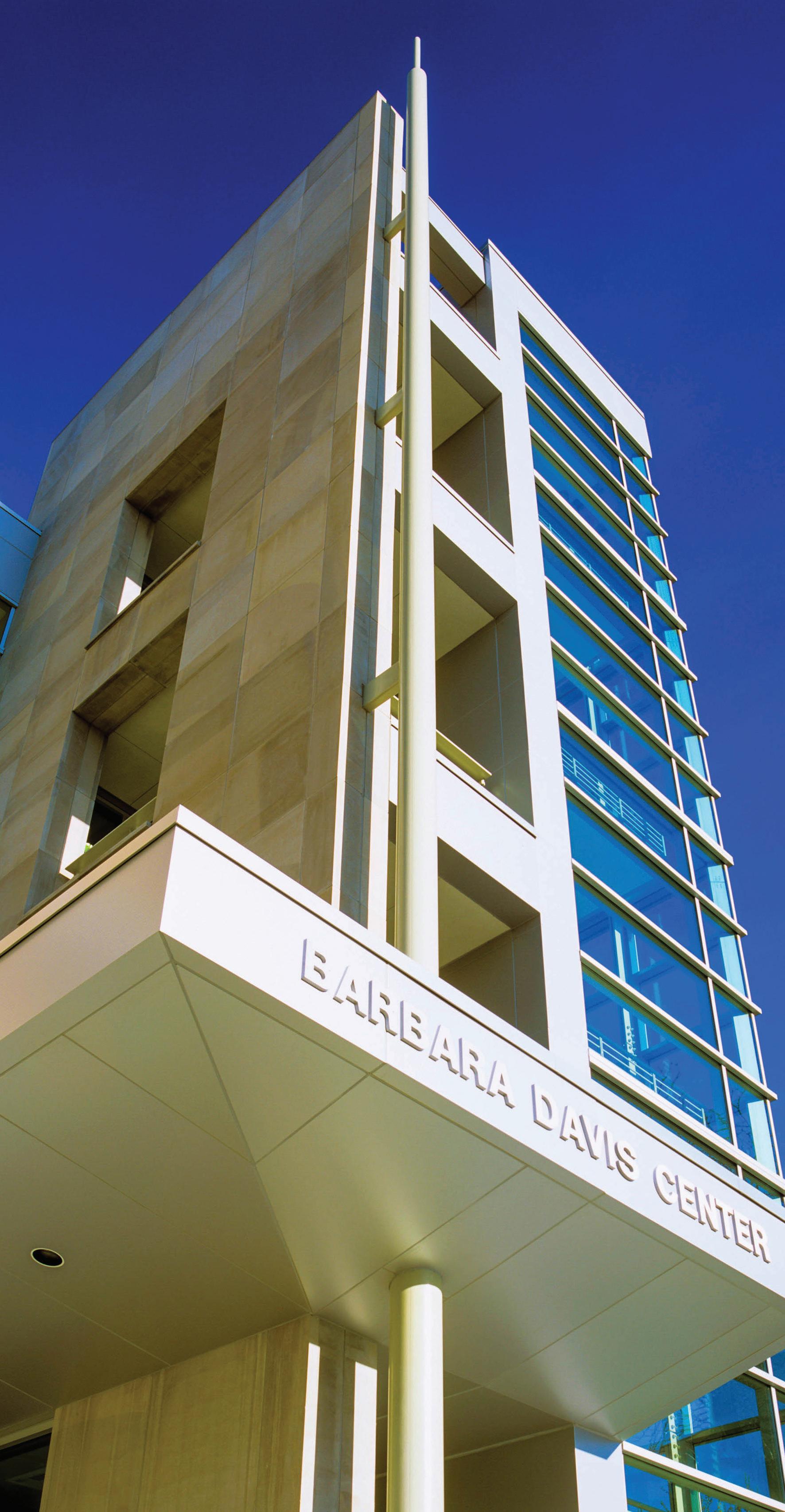 Donald M. Elliman Chancellor, CU Anschutz Medical Campus
Donald M. Elliman Chancellor, CU Anschutz Medical Campus
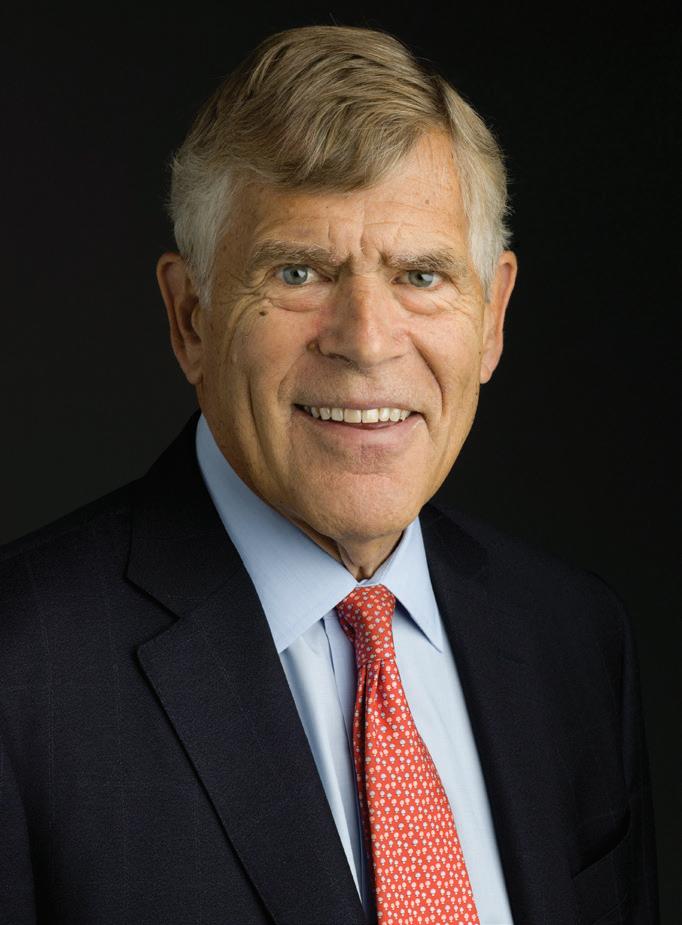
For 12 years, the Helmsley Charitable Trust’s $20.4+ million investment has accelerated progress in understanding type 1 diabetes (T1D) and developing new diagnostic and treatment strategies. A portion of your support has championed various efforts at the Barbara Davis Center for Diabetes including: investigating genetic factors in individuals who are normally protected from developing T1D; the Early Start Study to provide continuous glucose monitors; the Autoimmunity Screening for Kids study; supporting individuals with T1D who were impacted by the COVID-19 pandemic; and cost-effective, improved diabetes care for the Latino population. We are humbled by your impact.
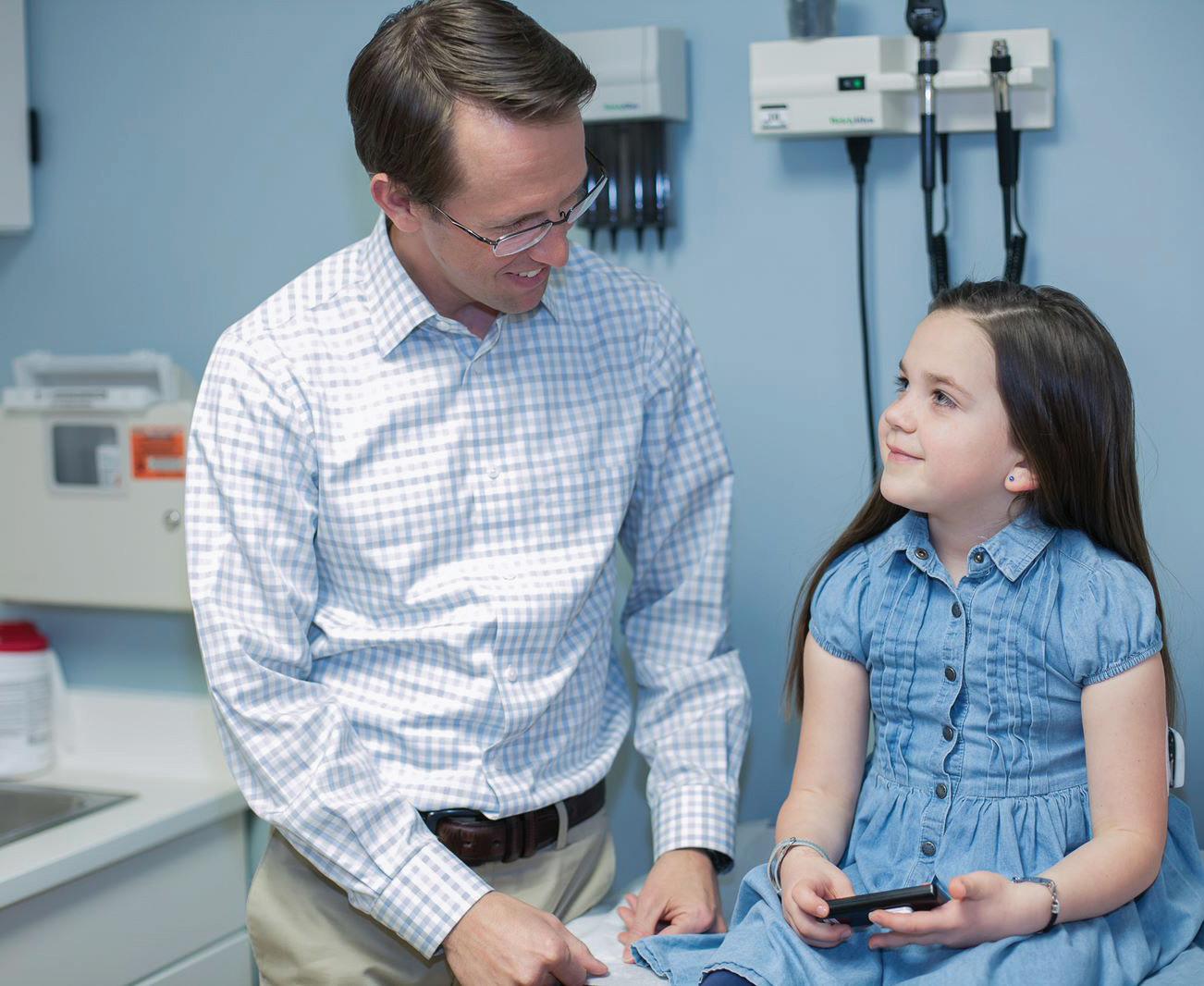
As director of the Barbara Davis Center’s Spanish Language Program, Andrea Gerard Gonzalez, MD, continues to develop culturally sensitive interventions to close the diabetes care gap for underserved communities. She is passionate about improving the quality of life of Latino families living with T1D to target the many challenges that providers face while taking care of this growing population. Your investments in the Novel Education and Diabetes Pilot Program for Latinos have yielded impressive results. To date, the program has served more than 90 Spanish speaking patients and provided valuable training to more than 250 diabetes caregivers.
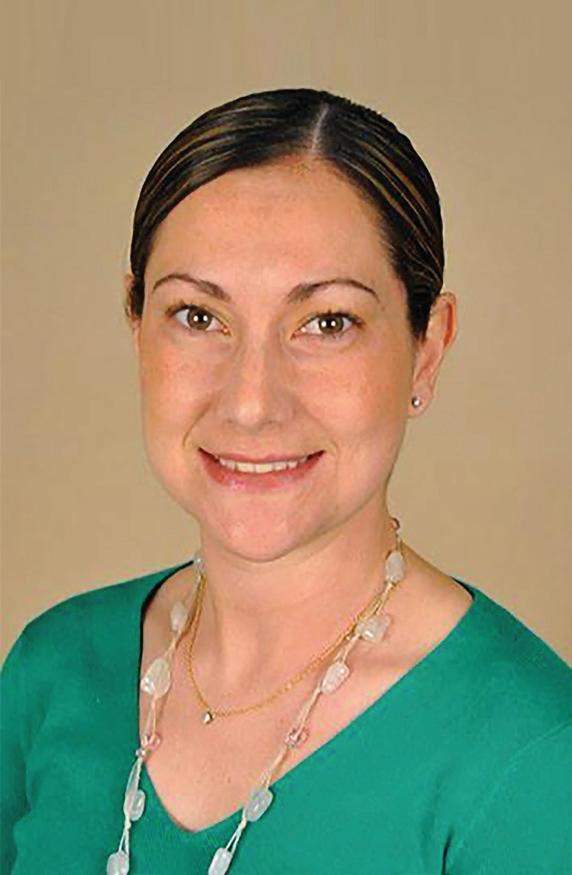
The funds have been used to develop the overall program strategy and curriculum, covering principal investigator and research assistant salaries, as well as care costs of uninsured patients. Additionally, your support led to the implementation of this pilot program at three outside diabetes centers. With Dr. Gerard Gonzalez at the helm, we intend to grow this program to improve the telemedicine outcomes of minority populations and become a leader for equitable diabetes care.
“I have no words to describe how important the Helmsley Charitable Trust has been. Their gifts have paved the way for developing novel strategies to improve diabetes care and outcomes of the most vulnerable populations, addressing the diabetes care gap in a cost-effective way. Without your help, my dream to deliver the same state-of-theart diabetes care to our minority population wouldn’t be possible.”
Andrea Gerard Gonzalez, MD Clinical Associate Professor Pediatric Diabetes Division, Barbara Davis Center for
Your philanthropic investments have been instrumental in expanding our knowledge of the causes and risks of diabetes. To translate these results to public health and prevention of T1D, Marian Rewers, MD, PhD, initiated the Autoimmunity Screening for Kids (ASK) and ASK the Experts (AtE) supported by the Helmsley Charitable Trust. These inaugural programs aim to screen and monitor general population children for early diagnosis of T1D to prevent diabetic ketoacidosis (DKA) at the onset as well as identify children who are at risk for celiac disease.
To increase education and awareness regarding T1D symptoms and the prevalence of DKA and complications at diagnosis, Dr. Rewers expanded our community education and social media campaign to reach Colorado children ages 1-17 and their parents and has engaged pediatric providers and patients using ASK screening initiatives across Colorado. The ASK intervention has been shown to reduce the rate of DKA at diagnosis to 3% compared to 59% currently in Colorado’s general population children. Furthermore, the ASK program has increased community awareness around T1D signs and symptoms and has reduced the need for hospitalization at diagnosis.
In the Transition Phase of ASK (12/2020-06/22), Dr. Rewers laid the foundation for a sustainable universal screening program through collaboration with the Children’s Hospital Colorado Network of Care, Denver Health and Hospital, and multiple community partners and state laboratories with expansion to Durango, Colorado, as well as increased monitoring efforts, now offered nationally through AtE to individuals who have tested positive for T1D or CD autoantibodies. In our next Sustainability Phase in 2022-2024, we will continue to expand and share screening protocols and materials with other groups interested in developing general population screening and monitoring in their communities.
“The Helmsley Charitable Trust’s ongoing support has been instrumental in helping ‘steer the ship’ toward support for universal screening for T1D and celiac disease in the U.S.
Through our partnership, we can bridge the gap between access to screening, support monitoring, and foster the engagement of providers and other stakeholders who are helping make T1D screening the standard of care in the U.S.”
2015–2022: Novel Education and Diabetes Pilot Program for Latinos; Dissemination of Group Clinic Model for Diabetes Care for Latino Patients: $2,517,974
2016: Novel Pathways to Slow Progression from Islet Autoimmunity to Diabetes; Single Persistent Islet Autoantibody Phenotype: Personalized Risk Assessment; ASK the Experts; Complement System: $3,604,091
- Marian Rewers, MD, PhD Professor
Executive Director, Barbara Davis Center for Diabetes Abrams-Rewers Chair in Clinical Research
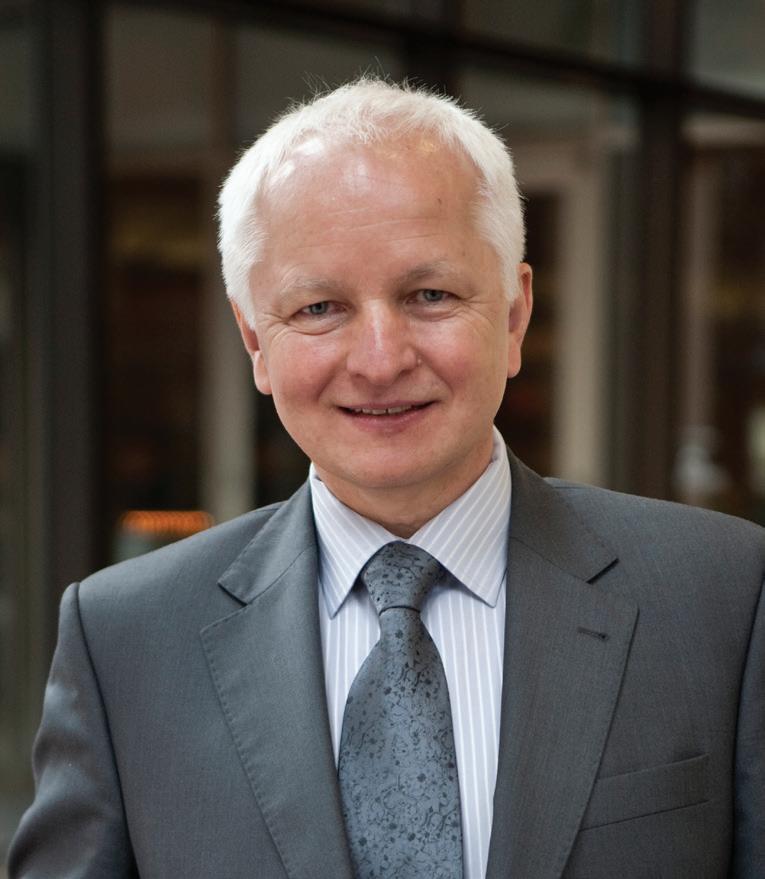
We are at a unique moment in time to change the path of T1D for patients and families thanks to the work of clinician researchers like Brigette Frohnert, MD, PhD. Her research project, The Early Start Study (TESS), provides continuous glucose monitors (CGMs) to families whose children do not yet need insulin. Dr. Frohnert uses information from CGMs to teach families about the impact of diet and exercise on blood glucose. When children eventually develop the need for insulin, the CGM information helps their care team decide how and when to start insulin therapy.
This past year, Dr. Frohnert’s team enrolled its 22nd participant into the TESS study, with 14 in the intervention arm. These participants have shown both the islet autoantibody markers indicating elevated risk of T1D as well as the beginnings of abnormal changes in blood glucose measurements, known as stage 2 T1D. At enrollment, they do not yet need insulin, but are coming closer to clinical diabetes (stage 3 T1D). Thus far, seven of the participants developed a need for insulin before the end of their study. Additionally, families in the intervention arm have received education from all members of our diabetes care team; they meet routinely to review changes in CGM glucose patterns and to make decisions about insulin dosing when needed.
Your support of the TESS protocol has been invaluable as the funds covered extensive laboratory evaluation at five in-person research visits, insulin supplies and CGM devices for families, and salary support. This type of screening work can prevent patients from becoming very sick at diagnosis, an event that can affect diabetes control for years to come. Dr. Frohnert hopes to see the approval of the first intervention to slow the course of the disease and give families more time before insulin is needed.
“The Helmsley Charitable Trust has been a major source of inspiration and funding for innovation in the field of T1D care. Beyond financial support, the Helmsley Charitable Trust research team acts as an ally in moving the field forward, introducing researchers to others with diverse expertise and encouraging collaboration. Without a doubt, you have been a major engine toward improved lives for families living with T1D or the risk for developing T1D.”
Brigette Frohnert, MD, PhD Associate Professor Pediatric Diabetes Division, Barbara Davis Center for Diabetes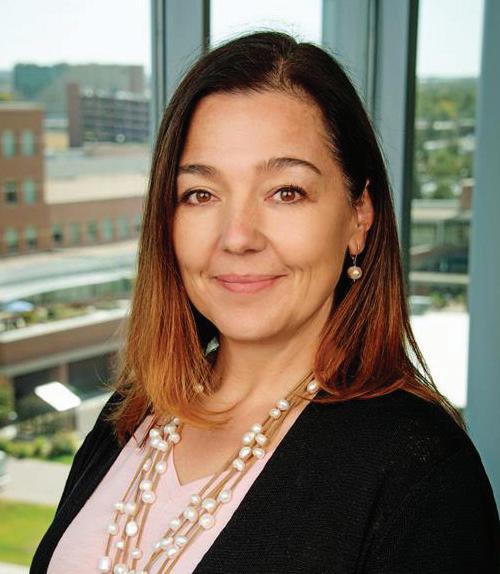
As medical director of the pediatric clinic and director of the telemedicine program at the Barbara Davis Center for Diabetes, Raj Wadwa, MD, developed a model telemedicine program providing residents in Wyoming and remote parts of Colorado with access to our expert T1D services. The importance of telehealth services was made more evident during the COVID-19 pandemic. Our doors at the Barbara Davis Center pediatric clinic stayed open to help those in need, and that is in part thanks to philanthropic support from organizations like the Helmsley Charitable Trust. Your generous gift to COVID-19 operations helped individuals with T1D who were impacted by the pandemic. To help mitigate the increased demands on the clinic, Dr. Wadwa utilized the funds for the rapidly expanding telemedicine program, for patient navigators and other staff supporting patient needs around telemedicine clinics, and for diabetes educators and other staff addressing other patient needs beyond usual clinic visits.

“At the Barbara Davis Center for Diabetes, we are committed to the highest standards of patient care. Your support provided an extra boost to our pediatric clinic during the first year of COVID-19 when things seemed bleak for many. Thank you for all that you do to improve the lives of patients with T1D.”
- Raj “Paul” Wadwa, MD
Professor Director of Pediatric Diabetes Division, Barbara Davis Center for Diabetes Wagner Family Chair in Childhood Diabetes
For Aaron Michels, MD, the fight to end diabetes is personal. Having lived with T1D for more than 30 years, it is his professional career goal to contribute to prevention and ultimately a cure. Your research support is improving our basic understanding of T1D. The funds have allowed Dr. Michels to investigate the genetic factors in a novel subset of individuals who are normally protected from developing T1D and utilize this knowledge to develop a safe and specific therapy to prevent the disease.
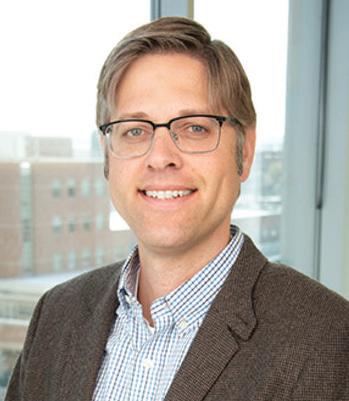
Over the last six months, Dr. Michels’ team has used state-of-the-art DNA sequencing technology to sequence the entire genomes of individuals who, given their unique genetic makeup, should have been protected from developing T1D—but developed it anyway. They are also sequencing the entire genome of age and sex matched individuals who have the diabetes protective gene (named DQ6) and have not developed T1D. The insights from this research will aid in identifying novel genes and pathways that influence diabetes development. A second part of their research is focused on developing a therapy that mimics the normally dominant protection provided by DQ6 to delay and prevent T1D. There are many promising discoveries on the horizon thanks to your support of this novel research project. First, insight into the detailed genetic mechanisms leading to T1D development; and second, the development of a safe and specific therapy to ‘reeducate’ the immune system of individuals who are at risk, as well as those already living with T1D, to prevent disease onset and keep newly diagnosed individuals making their own insulin.
“Thank you for all that you do to understand T1D pathogenesis, promote disease prevention, and improve the care of patients and families living with this disease. Because of generous organizations like the Helmsley Charitable Trust, we are well on our way to translating our research findings from ‘bench to bedside’ to prevent T1D.”
2022: A Phase 2, Randomized Trial to Determine the Safety, Acceptability and Efficacy of Early Initiation of CGM-Guided Insulin Therapy in Stage 2 Type 1 Diabetes: $1,149,333
2022: Failed Genetic Protection: T1D in the presence of DQB1: $801,100
- Aaron Michels, MD Associate Professor Adult Diabetes Division, Barbara Davis Center for Diabetes
SHARPENING OUR UNDERSTANDING OF GENETIC MECHANISMS LEADING TO TYPE 1 DIABETES
George Eisenbarth, MD, PhD, the late executive director for the Barbara Davis Center for Diabetes, was a once-ina-lifetime pioneer in diabetes research. He dedicated his life to discovering the cause of and finding a cure for T1D, a disease that affects more than 1.6 million people in the U.S. Few individuals have contributed as many fundamental discoveries related to T1D as Dr. Eisenbarth. His groundbreaking research would eventually prove that T1D was a chronic immune disease—one that can be predicted by genes specific to the immune system and the presence of certain antibodies.
After receiving the prestigious Pulitzer Scholarship to study biology at Columbia University, he continued his education with MD and PhD degrees from Duke University. From the National Institute of Health to faculty appointments at Duke and Harvard Medical School, Dr. Eisenbarth pursued research that led to a conceptualization of the progressive stages of T1D. In 1992, the University of Colorado School of Medicine recruited Dr. Eisenbarth as the executive director of the Barbara Davis Center for Diabetes. During his 20-year tenure, he helped grow the Center into one of the world’s largest diabetes research institutes.
In 2009 he was awarded the Banting Medal, which is the highest honor bestowed by the American Diabetes Association for a lifetime achievement in research. Dr. Eisenbarth passed away on November 13, 2012, after battling pancreatic cancer. An inspiration for researchers, clinicians and students alike, his impact on the field of diabetes will be remembered for generations.
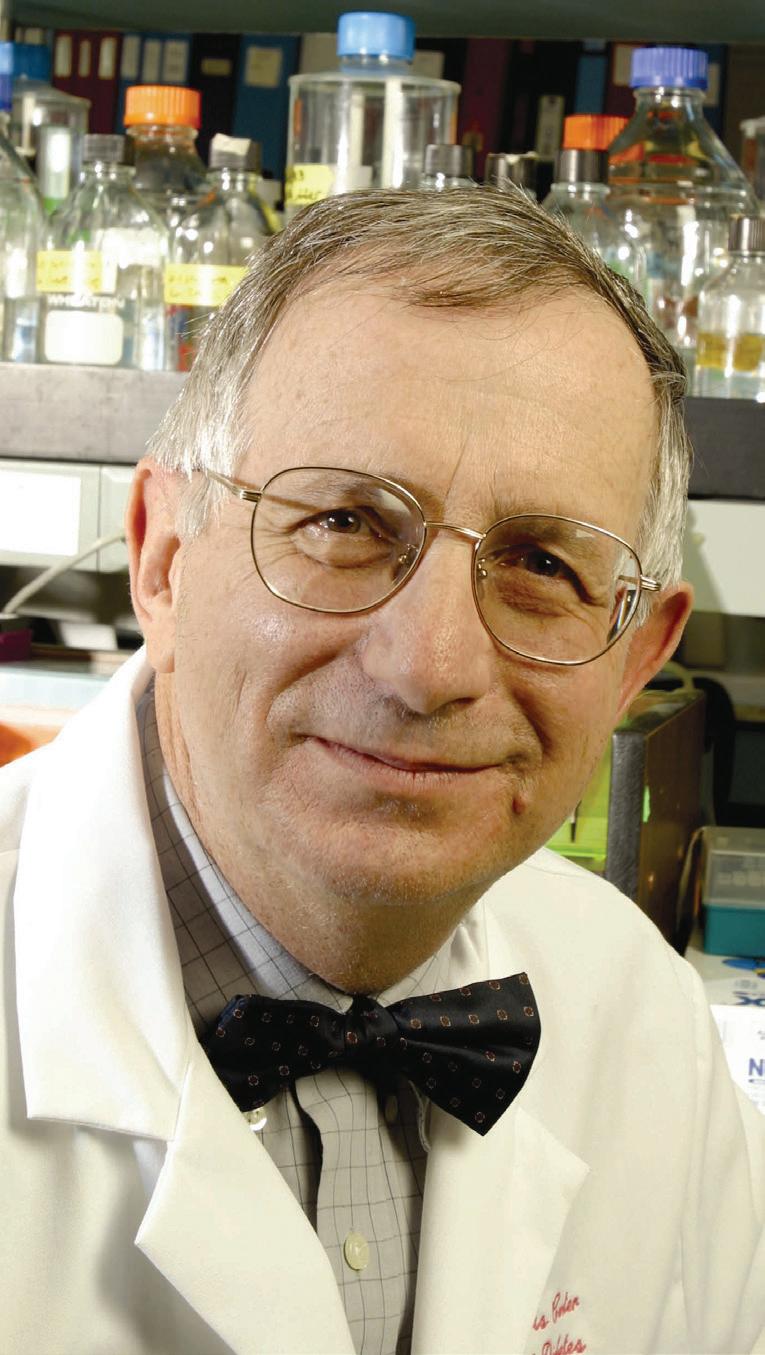
Thank you for your longstanding partnership with the Barbara Davis Center for Diabetes. For 12 years, the Helmsley Charitable Trust has maintained unwavering dedication to type 1 diabetes research, keeping the Barbara Davis Center for Diabetes at the forefront of innovation and discovery. Your generosity is abundant, and you have changed innumerable lives.
Your investments allowed us to take diabetes research to new heights, and to advance our mission to improve the health and wellbeing of people and communities through the highest quality of care. By investing in our skilled faculty and widely respected programs, you have advanced our ability to transform lives.

We are grateful for your steadfast support for the Barbara Davis Center for Diabetes. We look forward to our continued partnership and all that we will accomplish together.
Sincerely,

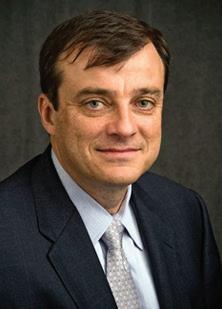
The Helmsley Charitable Trust’s philanthropic partnership has allowed us to make significant strides at the Barbara Davis Center for Diabetes. With your support, we continue to deepen our understanding of type 1 diabetes, improve treatment and inch closer to prevention and cure. Thank you for entrusting us with your philanthropic investments.
